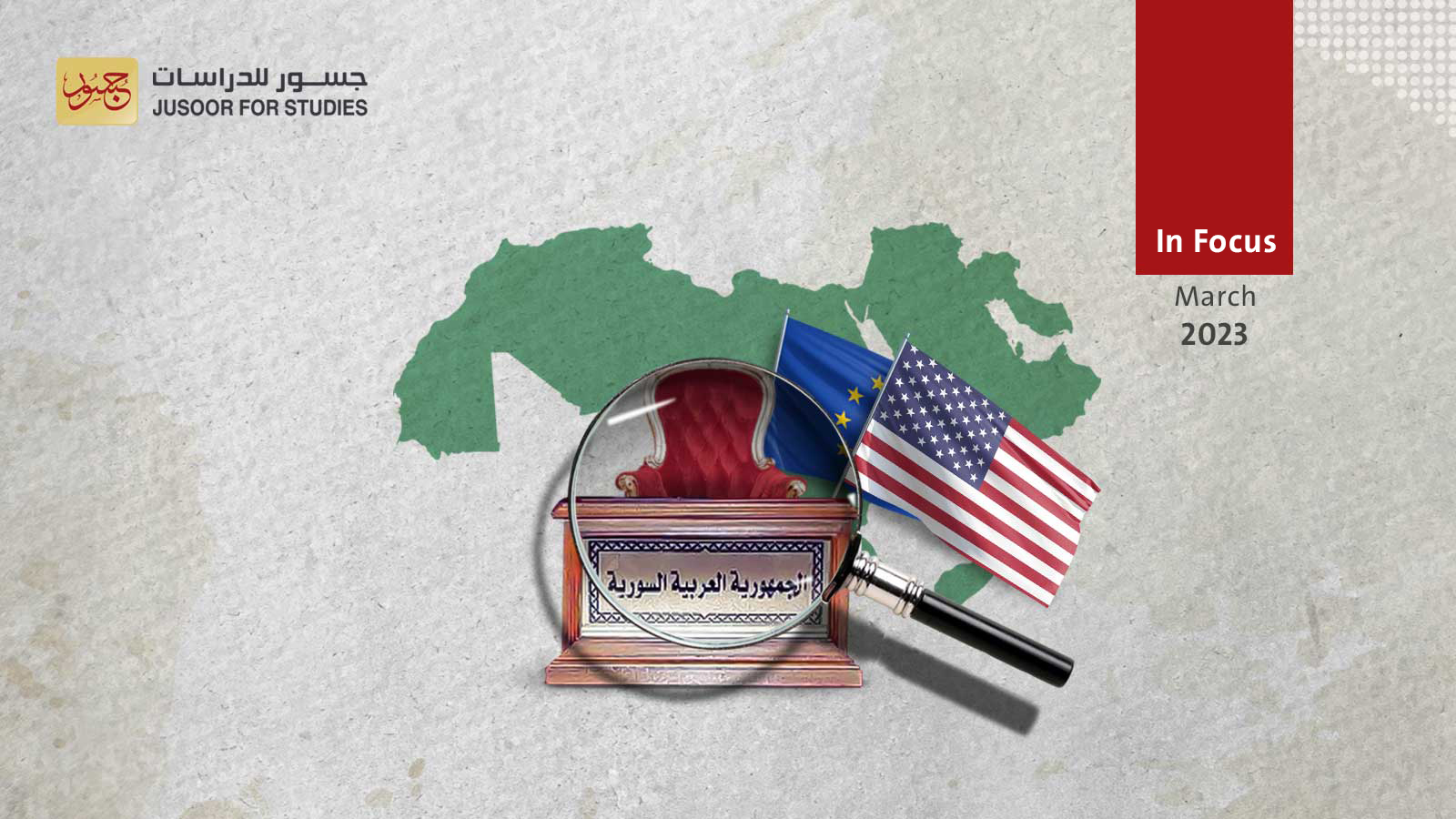The Western position on initiatives for normalizing relations with the Syrian regime
Western states have responded to the recent regional initiatives for normalizing relations with the Syrian regime with remarkable diplomatic movement. In this regard, the governments of the United Kingdom, the United States, France and Germany issued a joint statement on March 16, 2023, stressing that they “will not normalize relations with the Assad regime until a political solution to the conflict in the country is found in line with UN Security Council Resolution 2254, that is grounded in justice and accountability and remains the only way to achieve the stable peace that Syrians need and deserve.”
The quartet statement was preceded by the European Union’s announcement on January 18 of the three “No’s,” namely: no to normalization, no to reconstruction, and no lifting of sanctions, as long as the regime does not actively participate in the political solution.
Moreover, the United States, France, Germany, the UK and Norway held an expanded meeting on March 21, 2023 , in Amman, attended by Saudi Arabia, the UAE, Türkiye, Qatar, Jordan and Egypt in addition to the Arab League and the European Union as a communiqué was released.
Although the communiqué avoided referring to the initiatives of normalization with the regime, in order to prevent dividing the positions of the participating sides and contented itself with affirming support for Security Council Resolution 2254 (2015) only. In practice, this reflected the seriousness of the Western position regarding ending the isolation of the regime.
During the Security Council session on March 23, Western countries renewed their position on normalization relations with the regime; as the US ambassador, Linda Thomas Greenfield, stressed that the UN-facilitated political process is the only way to reach a permanent solution to the conflict. Thomas also warned the countries that are dealing with Bashar al-Assad because the latter has repeatedly used chemical weapons and is still flooding the region with Captagon pills. The French ambassador to the Security Council, Nicolas de Rivière, also confirmed his country's position toward the regime.
In fact, the Western position, which refuses normalization with the regime, appears to be due to security and political reasons; as restoring relations with a regime as such means to give in to the violations of international law been committing by it, especially the use of chemical weapons, torturing and killing detainees and the forcibly disappeared persons in prisons, which, in turn, undermines the regional and international security and stability by flooding the region with drugs and providing the infrastructure for Iranian militias in order to use Syria as a base of operations for Iran.
Western countries also view normalization as a point of political polarization with Russia, as the latter supported this path since its inception. This is because the fact that says if Putin succeeds in rehabilitating the Assad regime away from the UN Security Council resolutions, this will certainly affect the European and American interests and policies in the region. This will also pave the way for resolving other conflicts in the world away from the United Nations after Russia draws a solution in accordance with its own interests and goals.
Finally, the Western position still constitutes an obstacle to the success of the path of normalization and the achievement of benefits for the countries involved in such an approach.
Yet, the Western countries have had no alternatives to such initiatives, except for adhering to the political process in accordance with Security Council resolutions. Although this position may lead to the continuation of the freezing of the conflict that built the path of normalization, the outbreak of field escalation is still a possibility. This may threaten the collapse of the path.








